Columns
Columns, In Theory, New in Ceasefire - Saturday, February 3, 2018 12:40 - 2 Comments
An A to Z of Theory">Hakim Bey: Alienation and The State An A to Z of Theory
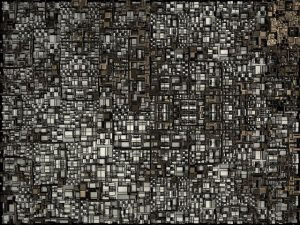
In the fourth essay of his series on Hakim Bey, Andrew Robinson explores Bey's view of the dominant system as a 'Spectacle', the theory of alienation, and the history and contemporary forms of the state.
Columns, In Theory, New in Ceasefire - Thursday, December 7, 2017 15:05 - 0 Comments
An A to Z of Theory">Hakim Bey: Chaos, altered consciousness, and peak experiences An A to Z of Theory
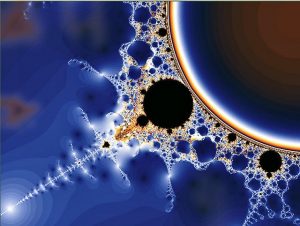 In the third essay of his series on Hakim Bey, Andrew Robinson explores the role of peak experience and altered consciousness in ontological anarchism. He examines how immediacy can provide a basis for resistance to alienation, explores Bey's ethical theories, and looks at whether social life is still possible if outer order is rejected.
In the third essay of his series on Hakim Bey, Andrew Robinson explores the role of peak experience and altered consciousness in ontological anarchism. He examines how immediacy can provide a basis for resistance to alienation, explores Bey's ethical theories, and looks at whether social life is still possible if outer order is rejected.
Columns, In Theory, New in Ceasefire - Friday, November 24, 2017 16:56 - 0 Comments
An A to Z of Theory">“Chaos never died”: Hakim Bey’s Ontology An A to Z of Theory
 In the second essay of his series on Hakim Bey, Andrew Robinson reconstructs the ontology of Bey's “ontological anarchism”. He examines what it means to take chaos as ontologically primary, and how a sense of meaning or order can emerge from chaos.
In the second essay of his series on Hakim Bey, Andrew Robinson reconstructs the ontology of Bey's “ontological anarchism”. He examines what it means to take chaos as ontologically primary, and how a sense of meaning or order can emerge from chaos.
Columns, In Theory, New in Ceasefire - Saturday, October 28, 2017 11:19 - 3 Comments
An A to Z of Theory">Hakim Bey: An Introduction An A to Z of Theory
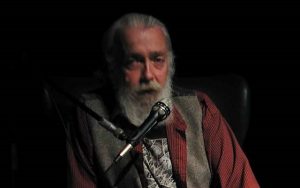 Best-known for his concept of the Temporary Autonomous Zone, Hakim Bey is one of the best-known anarchist theorists of the contemporary period. In this first part of a new series, Andrew Robinson gives a background to Bey's work, and explores whether he can be considered a post-anarchist.
Best-known for his concept of the Temporary Autonomous Zone, Hakim Bey is one of the best-known anarchist theorists of the contemporary period. In this first part of a new series, Andrew Robinson gives a background to Bey's work, and explores whether he can be considered a post-anarchist.
In Theory, New in Ceasefire - Monday, August 21, 2017 17:27 - 0 Comments
An A to Z of Theory">Augusto Boal: The Rainbow of Desire An A to Z of Theory
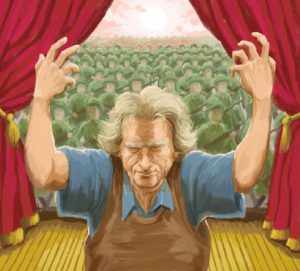 In the last of his seven-part series on the radical dramatist Augusto Boal, Andrew Robinson looks at the Rainbow of Desire, a set of techniques designed to deal with internalised oppression. Robinson surveys Boal's continuing influence, and the thorny question of whether theatrical challenges to oppression are always emancipatory.
In the last of his seven-part series on the radical dramatist Augusto Boal, Andrew Robinson looks at the Rainbow of Desire, a set of techniques designed to deal with internalised oppression. Robinson surveys Boal's continuing influence, and the thorny question of whether theatrical challenges to oppression are always emancipatory.
In Theory, New in Ceasefire - Tuesday, April 11, 2017 17:01 - 0 Comments
An A to Z of Theory">Augusto Boal: Legislative Theatre and Politics An A to Z of Theory
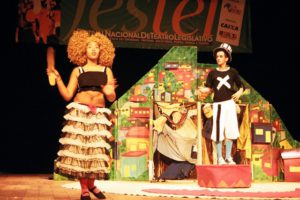 In his penultimate column on the radical playwright and director Augusto Boal, Andrew Robinson examines Legislative Theatre – a method pioneered during Boal's tenure as a member of the Rio local parliament. Robinson also examines and critiques the radical democratic perspective underpinning this phase of Boal's work.
In his penultimate column on the radical playwright and director Augusto Boal, Andrew Robinson examines Legislative Theatre – a method pioneered during Boal's tenure as a member of the Rio local parliament. Robinson also examines and critiques the radical democratic perspective underpinning this phase of Boal's work.
In Theory, New in Ceasefire - Thursday, January 19, 2017 22:36 - 0 Comments
An A to Z of Theory">Augusto Boal: Games and Techniques An A to Z of Theory
 In the latest essay in his series on Augusto Boal, Andrew Robinson examines the wide range of different techniques formulated or summarised by the Brazilian playwright for revolutionising drama and life.
In the latest essay in his series on Augusto Boal, Andrew Robinson examines the wide range of different techniques formulated or summarised by the Brazilian playwright for revolutionising drama and life.
In Theory, New in Ceasefire - Tuesday, August 30, 2016 11:57 - 0 Comments
An A to Z of Theory">Augusto Boal: Brecht and Beyond – The Boal Method An A to Z of Theory
 In the fourth essay of his series on Augusto Boal, Andrew Robinson examines the process through which Theatre of the Oppressed came into being and explores the key features of Boal's technical approach.
In the fourth essay of his series on Augusto Boal, Andrew Robinson examines the process through which Theatre of the Oppressed came into being and explores the key features of Boal's technical approach.
In Theory, New in Ceasefire - Wednesday, June 22, 2016 14:35 - 3 Comments
An A to Z of Theory">Augusto Boal: The History of Theatre An A to Z of Theory
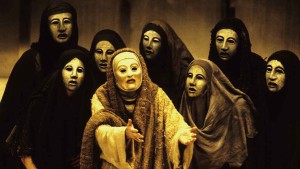 In the third essay of his series on Brazilian revolutionary dramatist Augusto Boal, Andrew Robinson explores Boal's analyses of classical and bourgeois theatre, as well as his criticisms of modern mass media such as television.
In the third essay of his series on Brazilian revolutionary dramatist Augusto Boal, Andrew Robinson explores Boal's analyses of classical and bourgeois theatre, as well as his criticisms of modern mass media such as television.
In Theory, New in Ceasefire - Tuesday, March 29, 2016 10:06 - 1 Comment
An A to Z of Theory">Augusto Boal: Theatre of the Oppressed An A to Z of Theory
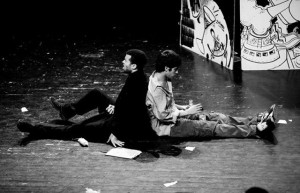 In the second essay of his series on Augusto Boal, the Brazilian playwright, director and political activist, Andrew Robinson explores Boal's Theatre of the Oppressed. He examines the classic forms of Boal's work, its key methods, and the centrality of concepts such as oppression and bodily alienation.
In the second essay of his series on Augusto Boal, the Brazilian playwright, director and political activist, Andrew Robinson explores Boal's Theatre of the Oppressed. He examines the classic forms of Boal's work, its key methods, and the centrality of concepts such as oppression and bodily alienation.

